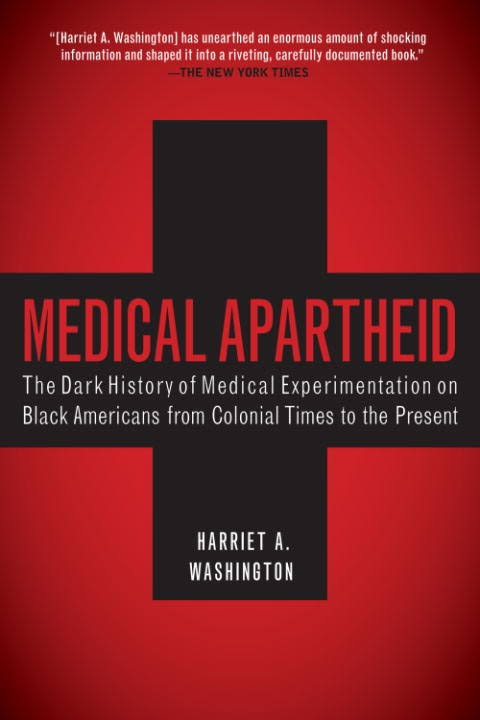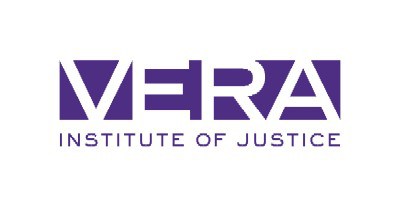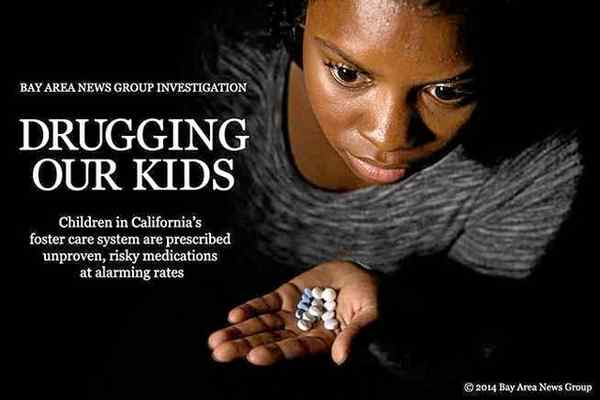Vera Institute of Justice Final Report (2009): 80 NYC Foster Children Died in AIDS Drug Trials
 Background:
Background:
Between 1985 and 2005, at least 532 infants and children in New York City were conscripted as human subjects of clinical trials testing experimental AIDS drugs and vaccines. The New York City Agency for Child Services (ACS), the custodian of foster care children, gave agencies such as Incarnation Children’s Center, permission to conduct experimental AIDS drug and vaccine trials in foster children in its care. ICC received payment for hosting these experimental trials; the medical research centers that conducted the trials received significant grants from both the National Institutes of Health and the manufacturers of the drugs. Among them iss Merck, BristolMyers Squibb, MicroGeneSys, Biocine, Glaxo Wellcome and Pfizer.
In 2004, after ascertaining that there were legitimate issues of concern and the possibility of child abuse–some of which were enumerated in a report by Liam Scheff — The House that AIDS Built, the Alliance for Human Research Protection filed a letter of complaint with the federal Office of Human Research Protection (OHRP).
The AHRP complaint focused on the enrollment of particularly vulnerable foster children in AIDS drug / vaccine experiments and system wide institutional failure to protect the individual child’s best interest in accordance with Federal regulations mandating an independent advocate for each child who is authorized to deny permission for a child’s enrollment in research.
The foster children enrolled in the AIDS trials were denied the dignity of their human right by having been enrolled in medical experiments without the consent of an independent advocate — as mandated by federal regulations.
ACS guidelines stated: “Separate consent need not be obtained for each child.”
This waiver, we believe, is unconscionable; it denied these children their basic human dignity and ascribed to them the status of guinea pigs. The case of the NYC Guinea Pig Kids was included in Harriet Washington’s book, Medical Apartheid (2007.

In November 2004, BBC aired the documentary film– Guinea Pig Kids by prize winning independent documentary film maker, Jamie Doran. After airing the disturbing documentary just once, the BBC came under intense pressure from powerful stakeholders who attempted to politicize the documentary–30 NYC institutions were involved in these AIDS drug experiments in foster children. The BBC abruptly pulled the controversial film from its website, but the 26 minute video is accessible on YouTube . (Transcript is available here and here)
Subsequent independent investigations — by the Associated Press, by the federal Office of Human Research Protections; and by the Vera Institute of Justice — confirmed that ethical standards and federal regulations had been violated. The investigations confirmed that most children did not have an the protection of an independent advocate to give or refuse consent to experimental interventions. Furthermore, the investigations confirmed that the children used in the experiments were predominantly African American (64%) and Latino (30%) raising the specter of racially discriminatory selection. And the Vera Institute, relying mostly on the city agency ACS documents, confirmed that children suffered serious harm — 80 of who died.
The Associated Press reported that the scope of these experiments was much wider; extending beyond New York to “at least seven states.” Among them: Illinois, Louisiana, Maryland, New York, North Carolina, Colorado and Texas. AP reported that more than four dozen different studies were involved. The foster children ranged from infants to late teens, according to interviews and government records.
Reports of serious side effects
Researchers reported some children had to be taken off the drug because of “serious toxicity,” others developed rashes, and the rates of death and blood toxicity were significantly higher in children who took the medicine daily, rather than weekly.At least 10 children died from a variety of causes, including four from blood poisoning, and researchers said they were unable to determine a safe, useful dosage. They said the deaths didn’t appear to be “directly attributable” to dapsone but nonetheless were “disturbing.”
“An unexpected finding in our study was that overall mortality while receiving the study drug was significantly higher in the daily dapsone group. This finding remains unexplained,” the researchers concluded.
Another study involving foster children in the 1990s treated children with different combinations of adult antiretroviral drugs. Among 52 children, there were 26 moderate to severe reactions — nearly all in infants. The side effects included rash, fever and a major drop in infection-fighting white blood cells. (John Solomon, Government Tested AIDS Drugs on Foster Kids, Associated Press, May 2005)
An investigation by the federal Office of Human Research Protections (OHRP)
In 2006, OHRP confirmed the allegations by the Alliance for Human Research Protection; concluding that Columbia University Presbyterian Medical Center in New York, failed to obtain proper consent from an independent advocate, failed to ensure “equitable” selection and and failed to ensure safeguards for the foster children who “are likely to be vulnerable to coercion or undue influence.”
“OHRP issued determination letters to 19 institutions across the country for violations related to the enrollment of foster children in the HIV/AIDS clinical trials originally cited in the AHRP letter. The 19 institutions included the New York City medical centers Bronx-Lebanon and Bellevue Hospital Centers. The SUNY Health Science Center at Stony Brook had also received a determination letter in February 2006 regarding two of the clinical trials cited. Each of these letters refers to an IRB’s apparent failure to categorize the research as 404, 405, 406, or 407 studies and/or to obtain sufficient information regarding the selection of foster children as participants in the trials.” Links to the 19 letters .
After a four year investigation by the Vera Institute, which was commissioned in 2005 by the NYC Administration of Child Services at a cost of $3 million, issued its Final Report (2009). The Report will hardly put to rest the controversy surrounding a 20-year period during which predominantly African American and Latino children in foster care were subjected to toxic Phase I and Phase II AIDS drug and vaccine experiments–mostly without parental consent and without the protection of an independent advocate–as mandated by federal regulations in force then and now.
 The VERA Institute Report confirmed that the letter of complaint sent by AHRP was the cornerstone for the federal investigation of Columbia University Medical Center’s HIV-AIDS clinical trials.
The VERA Institute Report confirmed that the letter of complaint sent by AHRP was the cornerstone for the federal investigation of Columbia University Medical Center’s HIV-AIDS clinical trials.
Executive Summary of the Report findings:
- 532 children in NYC foster care were enrolled in the AIDS clinical trials or observational studies.
- 80 of the 532 children who participated in clinical trials or observational studies died while in foster care;
- 25 of the children died while enrolled in a medication trial.
- 64 children participated in 30 medication trials that were NOT REVIEWED by a special medical advisory panel, as the city’s policy required.
- And 21 children participated in trials that the panel had reviewed, but had NOT RECOMMENDED.
- (In both cases, 13 of the enrollments occurred before the children were placed in foster care.)
The most frustrating aspect of the Vera Institute investigation, acknowledged by its director, Tim Ross, was that the Institute staff never gained access to the children’s primary medical records or the clinical trial records–which the hospitals involved kept sealed under a shield of confidentiality. That shield was endorsed by the state:
“the New York State Department of Health (NYSDOH) refused multiple requests from Children’s Services that it use its supervisory authority to allow Vera Institute of Justice staff from Vera or Children’s Services to review clinical trial research or medical records. This limited Vera’s review in several ways, including the ability to fully document the frequency and severity of toxicity (side effects), the individual outcomes of trial participation for the children in the review, and the existence of valid, signed informed consent documents.” (Vera Institute Report)
The authors of the report “concluded” — on the basis of (admittedly) incomplete, therefore unreliable records that the deaths were “not a direct result of the medications.” However the validity of that conclusion is highly questionable. The Vera Institute did not even have access to minutes from medical center research review boards (IRBs) where the trials were conducted.
“Vera could not identify the trials in which an IRB approved a trial under 5 CFR 46.406 or .407. HRA/Children’s Services’ policy required that each institution produce proof of IRB approval, but the policy did not require that the institution identify the category under which the IRB approved the research”
Vera Institute investigators were denied access to the crucial primary medical records
The investigation was charged with fact-finding about these highly controversial experiments; including the fact that 94% of the foster children enrolled in the experiments were children of color, most of them were enrolled in violation of federal informed consent requirements for children in foster care. The VERA Institute relied on secondary, child welfare files and Pediatric AIDS Unit (PAU) records both of which are notoriously incomplete.
“Although state regulations mandated that Children’s Services ensure the retention of most of the child welfare files that Vera was asked to review, for 30 percent of the children, some part of the child welfare file was lost, destroyed, or otherwise unavailable.”
“the records of the Pediatric AIDS Unit (PAU) were incomplete, especially after 1995. Problems with the PAU’s record keeping after 1995, including defects in the unit’s electronic database, were noted in the unit’s quarterly reports to supervisors and state officials, including the AIDS Institute.”
Even those incomplete welfare files provide a hint of the adverse effects suffered by children who had been subjected to the experimental trials:
“The child welfare files contained information indicating that some children experienced serious toxicities, or side effects, from trial medications, such as reduced liver function or severe anemia. These toxicities were consistent with toxicities described in published articles about the trials.”
The VERA Institute report makes some cogent critical observations about the shortcomings of the OHRP investigation:
” The OHRP investigations indicate that IRBs at many institutions across the country did not properly document their activities and did not take the special circumstances of children in foster care into consideration. As is its mandate, OHRP focused its activities on compliance with federal regulations. The investigation at CUMC [Columbia University Medical Center], however, left many other questions unanswered.”
“OHRP did not seek to make determinations on how many children in foster care participated in clinical trials or whether the person who signed the consent form had the legal authority to do so, nor did it examine what adverse events or benefits occurred to the children, if any, due to trial participation.
“The investigation did not examine whether foster children made up a disproportionate number of children in HIV/AIDS clinical trials or specify the policy of New York City’s child welfare agency for enrolling and monitoring foster children in clinical trials.”
AHRP’s concerns were confirmed:
Most of the foster children in the AIDS trials were denied the protection of an independent advocate charged with ensuring that a foster child’s best interest is served by participating in a research project–as mandated by federal regulations. Because the facts do not refute our complaint about the failure to provide NYC foster children the protection of an independent advocate–who may have refused consent for the AIDS drug / vaccine trials in which 80 children are confirmed to have died, the VERA report attempts to whitewash the violations by claiming that:
“The role and requirements of the independent advocate described in federal research regulations were not well understood by clinical trials researchers and, in some cases, child welfare staff….”
“In at least six instances where Vera reviewers found that an independent advocate had been appointed, the person appointed had relationships to the institution conducting the trial or a child welfare agency that the federal regulations specifically bar.”
It boggles the imagination that institutional review boards at premier medical research centers could claim ignorance about a glaring conflict of interest:
The NYC Administration of Child Services guidelines waived a foster child’s right to individual consent
This waiver was in direct violation of federal regulations requiring an advocate for each child. Instead, ACS officials issued altered guidelines: “Separate consent need not be obtained for each child.” This waiver denied foster children their basic human dignity and cast them to the status of guinea pigs.
The ACS Press Release falsely claimed: “evidence that child welfare officials followed then-current written policies to obtain parental consent for nearly 80 percent of children participating in the trials.” In fact, the NYC child welfare agency changed its enrollment policy to speed up the enrollment process.
Read more: AHRP Testimony; The Associated Press investigative reports “Researchers Tested AIDS Drugs on Children” (2004) and Government Tested AIDS Drugs in Foster Kids (2005) by John Solomon, found that less than a third of the children in the AIDS trials had an independent advocate; The New York Times coverage: Belated Charge Ignites Furor Over AIDS Drug Trial (July 17, 2005) by Jamy Scott and Leslie Kaufman; the Institute of Science and Society’s 2005 assessment about the experimental drugs tested on these children.
The New York Times article whited out the fact that 80 children died.
Following the release of the Vera Institute Final Report, the Times report by Lisa Foderaro (Jan. 27, 2009) was a blatant effort to white-wash the evidence of harm found by the investigation. The headline stated: Study Refutes Claims on AIDS Drug Trials and the article misrepresented the findings; misinforming its readers by reporting:
“An investigation into the participation of New York City foster children in clinical drug trials for H.I.V. and AIDS over a nearly 20-year period has found no evidence that any children died as a result of the trials or that the foster children were selected because of their race.”
Did The New York Times editors consider the death of 80 Black and Latino children NOT WORTHY of mention in its news report? Those children had been conscripted into toxic AIDS drug and vaccine trials; in violation of ethical standards and federal regulations; denied the protection of an independent advocate who could have prevented the inclusion of a foster child in experimental tests of toxic drugs that were not in the child’s best interest.
Read the stinging critique of this Times story by The Village Voice:
“the Times asserted with finality that ‘The Vera Institute concluded that none of the 532 children in the trials died as a direct result of the medications.’ The article was clearly intended to provide the final, definitive word about the controversy…
“However, when the director of the Vera Institute, Tim Ross, was asked about the assertion that none of the sick children had died from the toxic drugs themselves, he stated, ‘Trying to nail down the precise cause of death was very difficult. But to say that they died because of the trial . . . we couldn’t say that. You also can’t say that any particular kid benefited or lived longer from some of the medicines. Would they have died in three months instead of six—or a year?'”
Vera Hassner Sharav
THE VERA INSTITUTE OF JUSTICE
FINAL REPORT
THE EXPERIENCES OF NEW YORK CITY
FOSTER CHILDREN IN HIV/AIDS CLINICAL TRIALS, 2009
Vera Institute reviewers examined the child welfare files of 796 children who might have participated in HIV/AIDS clinical trials.
Read EXECUTIVE SUMMARYverainstitute-foster-children-hiv-aids-trials_executive_summary-2009



